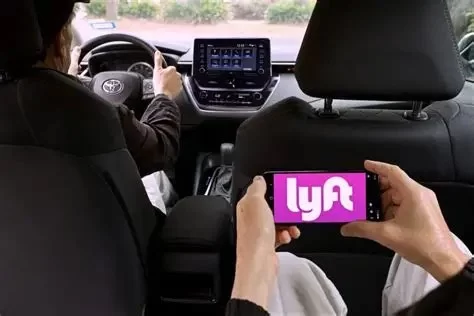- the-legal-challenges-uber-and-lyft-drivers-face
- rideshare-accidents-who-is-liable
- employment-status-and-driver-rights
- common-disputes-and-how-to-handle-them
- real-driver-stories-and-how-legal-help-made-a-difference
- why-fred-miller-lawyer-is-the-right-choice-for-drivers
1. The Legal Challenges Uber and Lyft Drivers Face
Driving for Uber or Lyft comes with freedom and flexibility, but it also opens the door to a range of legal concerns. From accident liability and insurance confusion to deactivation disputes and classification debates, the legal landscape for rideshare drivers is complex. That’s why understanding where to find legal help for Uber and Lyft drivers is more than a safety net—it’s essential protection for your livelihood.
Unlike traditional employees, rideshare drivers often operate in a legal gray area. Many aren’t aware of their rights until it's too late. With the gig economy growing and regulations shifting fast, drivers need more than just a good rating—they need legal clarity and advocacy.
2. Rideshare Accidents: Who Is Liable?
2.1 The Three Periods of Coverage
Uber and Lyft divide insurance coverage into three periods: waiting for a ride request, en route to a passenger, and transporting a passenger. Each stage has different levels of coverage—and different risks. If you're in an accident while waiting for a ride, your personal insurance may not fully cover you, and the company’s insurance may not activate unless you’re officially on duty.
2.2 Fault and Claim Disputes
Determining fault in an accident isn’t always straightforward. A rear-end collision or a distracted driver on a busy city street can lead to months of insurance back-and-forth. Without legal representation, many drivers settle for less than they deserve—or worse, get stuck with repair bills and medical costs.
2.3 What Legal Support Can Do
Having a lawyer review your case ensures you’re not taken advantage of by insurance companies. Legal professionals like Fred Miller Lawyer help navigate the complexities of rideshare-specific policies and fight for maximum compensation.
3. Employment Status and Driver Rights
3.1 The Independent Contractor Debate
In recent years, lawsuits have erupted over whether rideshare drivers should be classified as independent contractors or employees. The distinction is more than semantic—it affects your access to benefits, job security, and legal protections. Several states have passed legislation attempting to redefine the status, but challenges persist.
3.2 What You’re Entitled To
Many drivers don’t realize they may qualify for benefits like sick pay, overtime, or unemployment assistance—depending on local laws and how they're interpreted. Seeking legal advice helps you determine your classification and pursue what you’re owed.
3.3 Collective Action and Class Lawsuits
Some drivers have banded together in class-action lawsuits to demand fair treatment. Joining such actions requires knowledge and legal guidance to ensure your interests are represented and your share of any settlement is properly handled.
4. Common Disputes and How to Handle Them
4.1 Deactivation Without Explanation
Many Uber and Lyft drivers find themselves deactivated suddenly—sometimes based on false passenger reports or misunderstood events. These decisions often lack transparency, and without legal pressure, appeals go unheard. Legal help can demand records, initiate arbitration, or push for reinstatement.
4.2 Payment Errors and Tip Disputes
Another common issue is underpayment or disappearing tips. While the companies claim transparency, errors happen—and drivers often feel powerless to contest them. Legal counsel can audit payment histories and file formal complaints to recover missing wages.
4.3 Discrimination and Harassment
Rideshare drivers sometimes face discriminatory treatment by riders or even platform algorithms. These experiences aren’t just unfair—they may be illegal. A qualified attorney can help build a case and seek damages when warranted.
5. Real Driver Stories and How Legal Help Made a Difference
5.1 Jamal’s Crash, Denied Claim, and Justice Served
After being T-boned while on the way to pick up a rider, Jamal filed an insurance claim with Uber’s provider. It was denied, citing he wasn’t “active” on the app. Frustrated and injured, he turned to Fred Miller Lawyer. Within weeks, a legal letter and timeline analysis proved Jamal had accepted a ride request moments before the crash. Uber's insurer reversed their decision and covered his medical bills in full.
5.2 Maria’s Deactivation Nightmare
Maria, a part-time Lyft driver and single mom, was deactivated without warning after a passenger falsely accused her of reckless driving. She reached out for legal support and discovered that she had the right to challenge the deactivation through arbitration. Her lawyer uncovered video evidence disproving the claim, and her account was restored—along with missed wages from the lost driving days.
6. Why Fred Miller Lawyer Is the Right Choice for Drivers
If you're a rideshare driver navigating the maze of contracts, coverage, and complaints, Fred Miller Lawyer offers the experience and advocacy you need. With a deep understanding of gig economy laws and a track record of helping drivers reclaim income, insurance, and reputation, Fred Miller provides personal, effective legal solutions tailored to Uber and Lyft drivers.
Don’t wait until a small issue becomes a major legal battle. Whether you’ve been in an accident, had your account deactivated, or feel mistreated by the platform, Fred Miller Lawyer is ready to help you understand your rights—and fight for them.


 kurczaba attorney
kurczaba attorney brandon j broderick llc
brandon j broderick llc austin miller attorney
austin miller attorney lavonda graham williams attorney
lavonda graham williams attorney services offered by morgan and morgan philadelphia
services offered by morgan and morgan philadelphia david pedrazas reviews
david pedrazas reviews